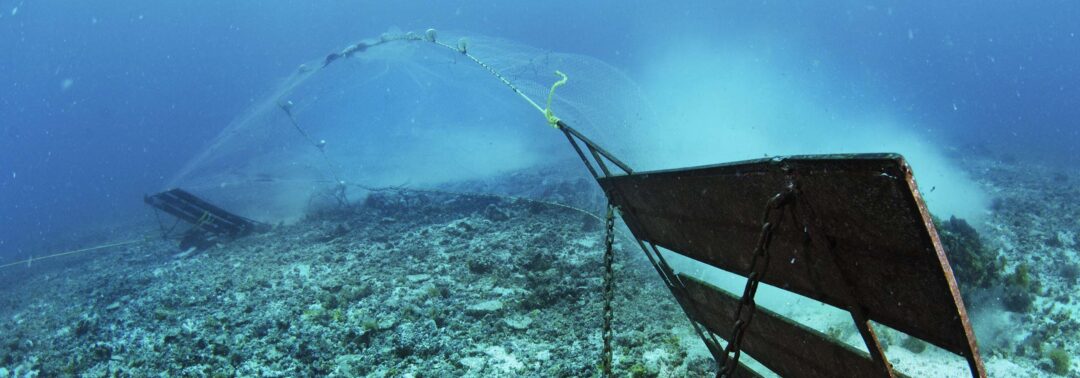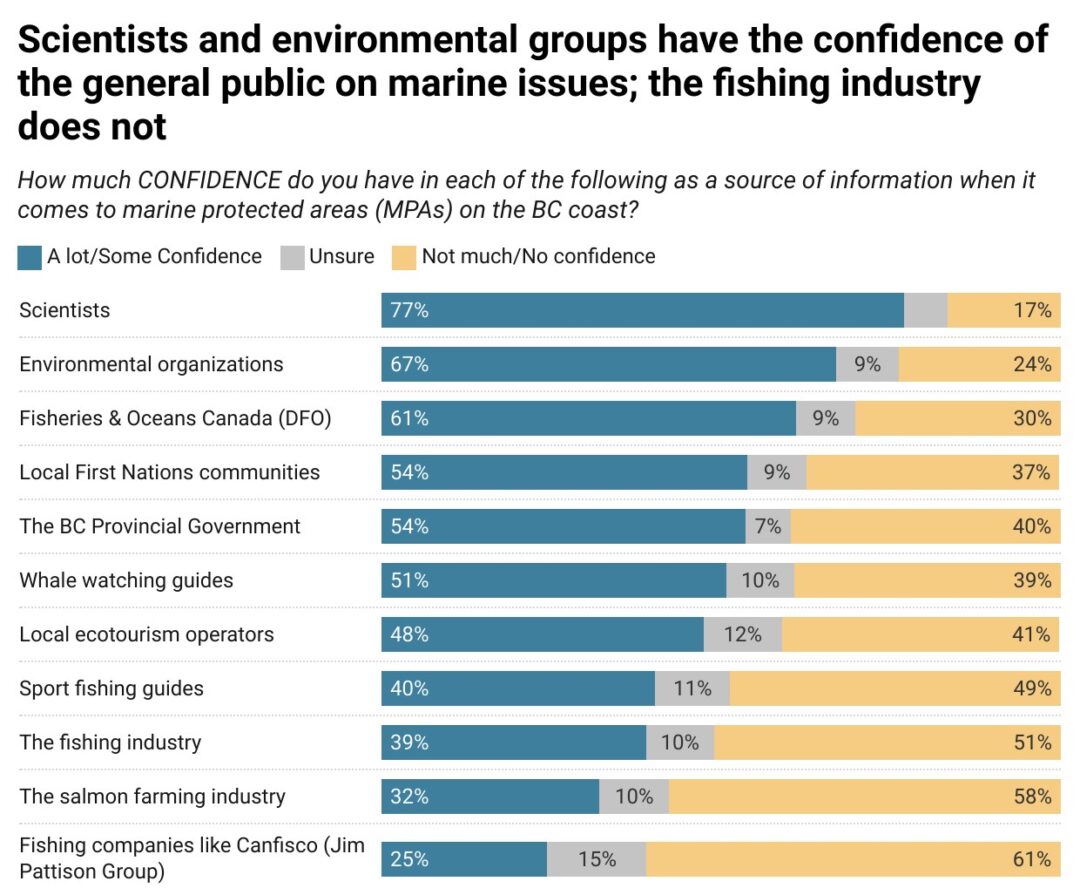British Columbians are famously contrarian, disagreeing about many things. But one thing that most of us seem to agree on is the need to protect our marine environment.
A recent province-wide survey found that 93% of British Columbians view marine conservation as the top priority for the future of the BC coastal economy. Other areas seen as important for the economic future of the BC coast include “renewable energy” (86%), “outdoor recreation” (82%), “small-scale community fisheries” (83%), and “ecotourism” (79%). At the bottom of the list is “deep sea mining” (44%).
According to pollster Mario Canseco, there are usually major differences in opinions on environmental protection “depending on the federal political allegiances of respondents.” With regard to marine conservation, he says, “This is not the case.”
Canseco’s claim is supported by his data. Over 9 in 10 of each federal political party’s supporters identified marine conservation as the top priority for the economic future of the BC coast: Conservatives (93%), Liberals (91%), NDP (95%), Green (94%), and PPC (94%).

Asked about “potential threats to the BC coast and coastal communities,” 92% point to “declining fish stocks” as their top concern. Second on the list is “open-net fish farms” (90%), followed by “bottom trawling” (90%), and climate change (84%). People were significantly less concerned about “excessive government restrictions on fishing” (65%).

The poll found that British Columbians have the most confidence in scientists (77%) and environmental groups (67%) as sources of information on marine issues. A majority also trusted Fisheries and Oceans Canada (61%), First Nations (54%), the provincial government (54%), and whale watching guides (51%).
“British Columbians have the least confidence in the fishing industry (39%), the salmon farming industry (32%), and fishing companies like Jimmy Pattison’s Canfisco (25%).”

The poll, released Nov. 22, is based on a province-wide online survey of 1,603 British Columbians conducted from October 31 through November 8, 2023. According to Research Co., the margin of error is ±2.4% 19 times out of 20.







